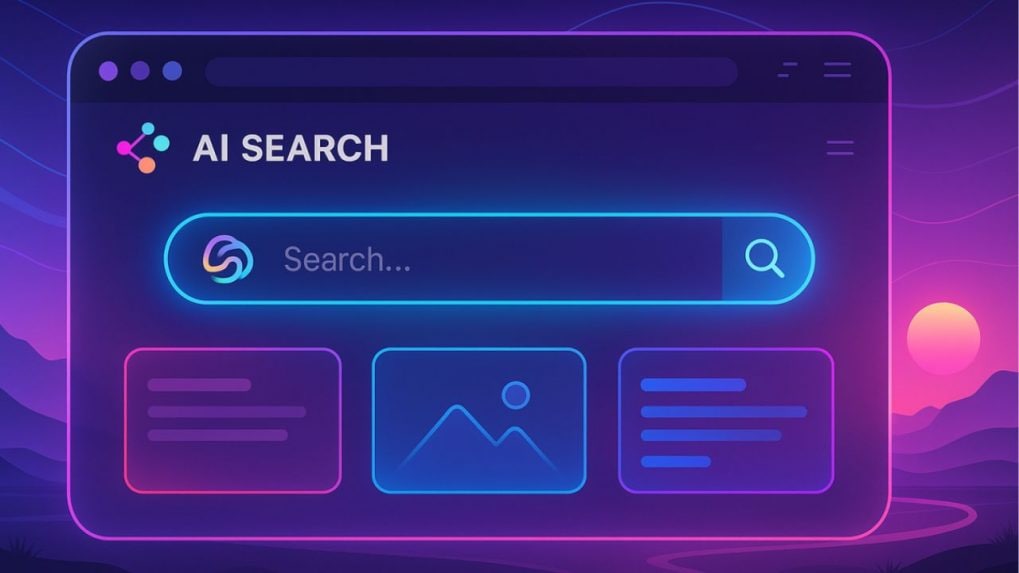From Gateway to Gatekeeper: The AI browser war is a fight for the future of the internet
Big Tech incumbents like Google still hold structural advantages, but nimble AI-first browsers are eroding edges of user behavior and trust.
ADVERTISEMENT
As the browser wars enter their AI era, a new kind of power struggle is unfolding — one that could redefine how consumers search, shop, and interact online. From being passive gateways to content, browsers are evolving into active intermediaries that understand intent, make decisions, and potentially even transact on behalf of users.
From gateways to gatekeepers
“AI browsers will certainly redefine the intermediary layer between brands and consumers,” says Akshay Mathur, founder and CEO of Unpromptd. “Historically, browsers were gateways to content; now, with AI embedded, they are becoming curators and decision-makers. That shift gives them immense influence over consumer intent and purchase behavior.”
But Mathur warns that this transformation risks concentrating power in familiar ways. “The browser market has traditionally seen one or two dominant players — Netscape in the early days, then Internet Explorer, and now Chrome. If the same pattern continues, we could end up with a few entities effectively controlling the last mile of commerce and discovery. When trillions of dollars in transactions flow through a handful of AI-enabled browsers, it creates a potential choke point for both competition and consumer data privacy.”
Affiliate disruption and ad network reinvention
If AI browsers start comparing prices and completing transactions directly, entire layers of the affiliate and ad ecosystem could collapse.
“An AI browser that understands your intent and directly executes a transaction could bypass the entire affiliate chain,” Mathur explains. “The user-to-brand connect becomes instant, making most intermediary networks redundant.”
While the implications for affiliate marketing are immediate, the threat to ad networks is slower but no less significant. “Not immediately, but the risk is real in the long term,” Mathur adds. “AI browsers could become their own closed ecosystems, recommending products and services based on first-party data and user context rather than ad placements. Traditional ad networks that depend on cross-site tracking will see erosion.”
That doesn’t mean advertising will die — it will evolve. “Just as search led to search ads and social led to influencer and feed-based ads, AI browsers may create a new category such as conversational ads or intent-driven commerce integrations. Networks that adapt to AI-native attribution and privacy-safe personalization will still stay relevant,” he says.
The battle for the browser
For Vikas Chawla, co founder, Social Beat, the shift is about owning the entry point. “Today, most of our research happens via the browser, so whatever your base search engine is becomes your default,” he says. “Perplexity and Comet have shown that you can integrate all of this into one seamless, fast, smart experience — something Chrome could have done earlier but didn’t.”
According to him, AI-first browsers are trying to bypass Google by owning the browser itself, not just search. “Only then can they own the complete search experience,” Vikas notes. “Incrementally, some search share is being taken by Perplexity, Claude, OpenAI, and maybe Gemini. Everyone’s growing right now — Google hasn’t plateaued yet. But over time, Google Search traffic may shift to Gemini.”
However, he points out that Google’s dominance remains multidimensional. “Google has properties that LLMs don’t — Maps, Android, YouTube, and its app ecosystem. For quick, low-value purchases I still use Google or e-commerce sites directly, but for high-value research-heavy decisions — like buying a car or a TV — I might use an LLM.”
Yet Chawla cautions that LLMs bring new privacy risks. “Google’s been around long enough that everyone knows what to expect. But with LLMs, we don’t. ChatGPT’s data sharing practices have already been questioned in court. Even if you turn off data training, we don’t really know what happens behind the scenes.”
Owning the entry point: habit, not hype
“Succeeding in the AI browser space is ultimately about habit,” says Sajal Gupta, CEO, Kiaos Marketing, “Once users install a browser, they rarely change it. Breaking that habit requires giving users something substantially better.”
He traces the evolution: “From Netscape to Internet Explorer, to Firefox, and then Chrome — each added something valuable. Chrome’s big hook was integrating search into the URL bar. That single step changed user behavior. For AI browsers to succeed, they’ll need to create equally strong hooks.”
Each player today is taking a different route. “Perplexity offers deeper citations and richer content. ChatGPT gives quick, creative summaries and integrates with tools like Canva. Anthropic’s Claude focuses on reasoning. None of them have cracked it fully — it’s still a work in progress,” says Sajal.
The new SEO: from Search to ‘Answer’ Optimization
Gupta also points to a fundamental shift in the publishing and SEO ecosystem. “If I’m a publisher, my content is now being used to train AI or appear in summaries — but users aren’t visiting my site. That means I’m losing ad revenue,” he says.
To counter that, major publishers have started blocking AI crawlers or signing licensing deals — just as they once did with Google. “Perplexity has long-term deals with Fox and reportedly with The New York Times. This mirrors the early Google playbook — onboard big publishers first, then expand globally.”
Traffic sources, he adds, are already diversifying. “Earlier, 60–70% of site traffic came from SEO. Now it’s down to 30–40%. The rest is being captured through AEO or GEO — Answer Engine Optimization and Generative Engine Optimization. Brands are now learning to optimize not for bots, but for AI engines that parse context and trustworthiness.”
The next phase of browser evolution will decide who controls the AI gateway to the internet. Big Tech incumbents like Google still hold structural advantages, but nimble AI-first browsers are eroding edges of user behavior and trust.
As Mathur puts it, “The browser is becoming the battleground for the future of intent.”


